James Scott Bell's Blog
March 6, 2013
Try to Write Like Fred MacMurray
Whenever I watch Double Indemnity I'm reminded of what a great actor
Fred MacMurray
was.

MacMurray was a guy with boy-next-door looks who became a steady leading man in Hollywood. Best known as the warm-hearted dad in the sitcom My Three Sons, MacMurray was equally at home in comedy, drama and film noir, adept in both movies and TV.
How good was he? Think about Double Indemnity. He plays a slick talking insurance man who teams up with a dame to knock off her husband. A murderer! Yet, by the middle of the film, we find ourselves pulling for him. I don't know many actors who could make that happen.
And I don't think, outside of Robert Mitchum, there's ever been a better deliverer of rat-a-tat film noir lines, like these:
"That's a honey of an anklet you're wearing."
"How could I have known that murder can sometimes smell like honeysuckle?"
"I wonder if a little rum would get this up on its feet."
Inexplicably, he was never nominated for an Academy Award. Outrage! He was absolutely robbed when Barry Fitzgerald was somehow nominated for Best Supporting Actor and Best Actor for the same role (Going My Way). MacMurray should have been given the Actor slot (Fitzgerald won for Support). Bing Crosby won Actor that year (again, for Going My Way) and while the old crooner was fine, he didn't do one tenth the acting MacMurray does in Double Indemnity.
Though MacMurray is remembered today mostly for his light comedy (e.g., The Absent Minded Professor), for my money his best roles were as lowlifes, in Double Indemnity, The Caine Mutiny, and The Apartment. He could have won Oscars for all three.
In other words he was a true actor, doing his job and doing it well. He never tried to show off or chew scenery. He blended into the role and served the greater purpose of the movie.
Which is what I like in writers, too. Getting the tone just right, not showing off in terms of style, but doing what serves the purpose of the story. Even Chandler, who has flights of style that soar, never tried to transcend his plot. He didn't want to. He was a real writer weaving a fictive dream.
I can think of a few writers like that, who are reliable, book after book. Someone like Donald Westlake (aka Richard Stark). Or John D. MacDonald.
Try to do the same.

MacMurray was a guy with boy-next-door looks who became a steady leading man in Hollywood. Best known as the warm-hearted dad in the sitcom My Three Sons, MacMurray was equally at home in comedy, drama and film noir, adept in both movies and TV.
How good was he? Think about Double Indemnity. He plays a slick talking insurance man who teams up with a dame to knock off her husband. A murderer! Yet, by the middle of the film, we find ourselves pulling for him. I don't know many actors who could make that happen.
And I don't think, outside of Robert Mitchum, there's ever been a better deliverer of rat-a-tat film noir lines, like these:
"That's a honey of an anklet you're wearing."
"How could I have known that murder can sometimes smell like honeysuckle?"
"I wonder if a little rum would get this up on its feet."
Inexplicably, he was never nominated for an Academy Award. Outrage! He was absolutely robbed when Barry Fitzgerald was somehow nominated for Best Supporting Actor and Best Actor for the same role (Going My Way). MacMurray should have been given the Actor slot (Fitzgerald won for Support). Bing Crosby won Actor that year (again, for Going My Way) and while the old crooner was fine, he didn't do one tenth the acting MacMurray does in Double Indemnity.
Though MacMurray is remembered today mostly for his light comedy (e.g., The Absent Minded Professor), for my money his best roles were as lowlifes, in Double Indemnity, The Caine Mutiny, and The Apartment. He could have won Oscars for all three.
In other words he was a true actor, doing his job and doing it well. He never tried to show off or chew scenery. He blended into the role and served the greater purpose of the movie.
Which is what I like in writers, too. Getting the tone just right, not showing off in terms of style, but doing what serves the purpose of the story. Even Chandler, who has flights of style that soar, never tried to transcend his plot. He didn't want to. He was a real writer weaving a fictive dream.
I can think of a few writers like that, who are reliable, book after book. Someone like Donald Westlake (aka Richard Stark). Or John D. MacDonald.
Try to do the same.
Published on March 06, 2013 08:49
November 12, 2012
5 Mid-NaNoWriMo Tips
What ho! You’re steaming through NaNoWriMo and are almost to the halfway point. Some of you are plowing ahead, some of you are stuck. Maybe something in between. Wherever you are, here are five tips to give you a fresh jolt of NaNo energy: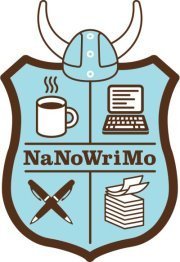
1. Go back and add words to previous scenes
One of the best ways to fill out your word count is to go backward. Read quickly through your previous scenes and, where you feel it, write in extra words to flesh out what may be scant. You’ll find a lot of scant. Then get back to the new pages.
2. Have your Lead “look in the mirror”
You’re getting to the midpoint of your novel. This is a crucial spot. In my workshops I teach the “look in the mirror” moment. It’s where your Lead looks at herself, figuratively, and sees that death is on the line (remember, death can be physical, professional or psychological/spiritual). She sees that the odds are she probably won’t make it. In The Hunger Games, for example, the midpoint is when Katniss reflects that she’s going to die, and very soon. In Casablanca, Rick looks at what he has become (a drunken bastard) and will have to decide, in the second half of the movie, whether he stays that way. It’s a great exercise to find out what your book is really about.
3. Write three “page-long sentences”
A page-long sentence is an exercise I conduct with students, to help them get to the emotional meat of a moment. Find the three most intense sections of your book so far. Now, write a sentence that doesn’t stop (use commas only!) about what is going on inside that character. I find it best to write in first person voice here. Then take the good parts and put them into the scene. Change first person to third person if that’s the POV you’re using.
4. Do one mega day this week
Plan one big, knock down, drag out, mega-writing day if you can. If you’re in the LA area, the “ Great Train Escape ” is an awesome deal. But wherever you are, create something similar for yourself. Camp out at a coffee place (but be sure to buy stuff from them every four hours).
5. Write the very, very first thing in the morning
If you’re not doing this already, try to write the first thing in the morning (or, second if you’re brewing your own coffee). Get a “furious 500” words done before anything else. If you have obligations that get in the way of that, try to do 500 extra at night.

1. Go back and add words to previous scenes
One of the best ways to fill out your word count is to go backward. Read quickly through your previous scenes and, where you feel it, write in extra words to flesh out what may be scant. You’ll find a lot of scant. Then get back to the new pages.
2. Have your Lead “look in the mirror”
You’re getting to the midpoint of your novel. This is a crucial spot. In my workshops I teach the “look in the mirror” moment. It’s where your Lead looks at herself, figuratively, and sees that death is on the line (remember, death can be physical, professional or psychological/spiritual). She sees that the odds are she probably won’t make it. In The Hunger Games, for example, the midpoint is when Katniss reflects that she’s going to die, and very soon. In Casablanca, Rick looks at what he has become (a drunken bastard) and will have to decide, in the second half of the movie, whether he stays that way. It’s a great exercise to find out what your book is really about.
3. Write three “page-long sentences”
A page-long sentence is an exercise I conduct with students, to help them get to the emotional meat of a moment. Find the three most intense sections of your book so far. Now, write a sentence that doesn’t stop (use commas only!) about what is going on inside that character. I find it best to write in first person voice here. Then take the good parts and put them into the scene. Change first person to third person if that’s the POV you’re using.
4. Do one mega day this week
Plan one big, knock down, drag out, mega-writing day if you can. If you’re in the LA area, the “ Great Train Escape ” is an awesome deal. But wherever you are, create something similar for yourself. Camp out at a coffee place (but be sure to buy stuff from them every four hours).
5. Write the very, very first thing in the morning
If you’re not doing this already, try to write the first thing in the morning (or, second if you’re brewing your own coffee). Get a “furious 500” words done before anything else. If you have obligations that get in the way of that, try to do 500 extra at night.
Published on November 12, 2012 08:13
August 21, 2012
Declaration of Indie-Pendence
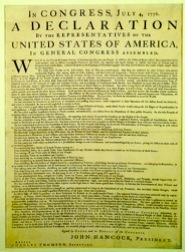 The Revolution is here, of course. The tea has been thrown in the harbor, and lanterns placed in the belfry. In many ways the self-publishing boom is like those heady days of liberation in our own country’s history, with possibilities seemingly endless, fresh territories waiting to be explored.
The Revolution is here, of course. The tea has been thrown in the harbor, and lanterns placed in the belfry. In many ways the self-publishing boom is like those heady days of liberation in our own country’s history, with possibilities seemingly endless, fresh territories waiting to be explored.Plus, we have not yet settled on the “one best way of doing things,” i.e., a Constitution. In fact, we’ve barely begun our Federalist Papers.
Yet the irascible, voluble J. A. Konrath has issued a
Published on August 21, 2012 14:18
June 6, 2012
The Night I Met Ray Bradbury
Ray Bradbury died yesterday, June 5 2012. A big slice of American popular culture went with him. His contributions to our collective imagination were huge.
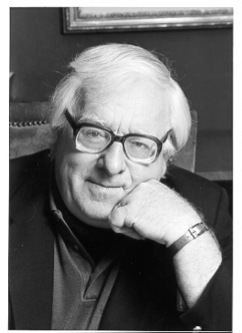 A little over twenty years ago, before I was a published author myself, I went to hear Ray Bradbury speak at the Woodland Hills Public Library. This was the library I grew up in, and Bradbury was one of the writers I admired most. I’d read The Illustrated Man in junior high school, and it was one of those books you read that just blows you away. It was the imagination on fire and set free, and I knew I wanted to be able to do something like that someday.
A little over twenty years ago, before I was a published author myself, I went to hear Ray Bradbury speak at the Woodland Hills Public Library. This was the library I grew up in, and Bradbury was one of the writers I admired most. I’d read The Illustrated Man in junior high school, and it was one of those books you read that just blows you away. It was the imagination on fire and set free, and I knew I wanted to be able to do something like that someday.
His talk that night was full of sprightly fun and reminiscences. I took notes on some of the things he said:
• Do word associations, as a way of letting your subconscious tell you what is inside you.
• Creating is NOT about fame, NOT about money. It's about having fun.
• Just do it.
• 2,000 words a day for 57 years. That wasn't work. That was fun!
• The intellectuals want us to believe it's no good unless it's tortured. The hell with that!
• Do what you love. Let it out into the world. If you're lucky, you'll get some money. But if you don't, do it anyway.
• “I work for free. I haven't made any money on any of my plays. But I love theatre. And I put up productions around town. And when I see the actors who've been in them on the street, we embrace, because we did what we loved and we had this experience together. For free. All the money went to my actors.”
• Don't think while you're doing it. Think after it's done.
• He uses no outlines, nothing. He wakes up in the morning and lays in bed until his characters, his voices, compel him to “scramble to the typer” and record them before they get away.
He signed books after his talk, so I stood in line with my treasured copy of ZEN IN THE ART OF WRITING, his essays on creativity and the craft. I introduced myself and we shook hands.
"Are you a writer?" he asked.
I quoted from the book: "'Stay drunk on writing so reality cannot destroy you.'"
He laughed and said, "Oh, you must!"
I asked him if he set himself a daily quota, and he said, “No, I let my love determine how much I write."
"Ah, so you fall in love daily?"
"That's right."
He signed my book. "Do you write every day?" he asked.
"Five days a week," I said. "Weekends are for my family."
He laughed again. "That's the way to do it!"
He offered his hand again and said, "God bless you."
And off I went into the night, feeling blessed indeed for having had the chance to talk to one of the legends of our literature.
Ray Bradbury, American original. Rest in Peace.
 A little over twenty years ago, before I was a published author myself, I went to hear Ray Bradbury speak at the Woodland Hills Public Library. This was the library I grew up in, and Bradbury was one of the writers I admired most. I’d read The Illustrated Man in junior high school, and it was one of those books you read that just blows you away. It was the imagination on fire and set free, and I knew I wanted to be able to do something like that someday.
A little over twenty years ago, before I was a published author myself, I went to hear Ray Bradbury speak at the Woodland Hills Public Library. This was the library I grew up in, and Bradbury was one of the writers I admired most. I’d read The Illustrated Man in junior high school, and it was one of those books you read that just blows you away. It was the imagination on fire and set free, and I knew I wanted to be able to do something like that someday.His talk that night was full of sprightly fun and reminiscences. I took notes on some of the things he said:
• Do word associations, as a way of letting your subconscious tell you what is inside you.
• Creating is NOT about fame, NOT about money. It's about having fun.
• Just do it.
• 2,000 words a day for 57 years. That wasn't work. That was fun!
• The intellectuals want us to believe it's no good unless it's tortured. The hell with that!
• Do what you love. Let it out into the world. If you're lucky, you'll get some money. But if you don't, do it anyway.
• “I work for free. I haven't made any money on any of my plays. But I love theatre. And I put up productions around town. And when I see the actors who've been in them on the street, we embrace, because we did what we loved and we had this experience together. For free. All the money went to my actors.”
• Don't think while you're doing it. Think after it's done.
• He uses no outlines, nothing. He wakes up in the morning and lays in bed until his characters, his voices, compel him to “scramble to the typer” and record them before they get away.
He signed books after his talk, so I stood in line with my treasured copy of ZEN IN THE ART OF WRITING, his essays on creativity and the craft. I introduced myself and we shook hands.
"Are you a writer?" he asked.
I quoted from the book: "'Stay drunk on writing so reality cannot destroy you.'"
He laughed and said, "Oh, you must!"
I asked him if he set himself a daily quota, and he said, “No, I let my love determine how much I write."
"Ah, so you fall in love daily?"
"That's right."
He signed my book. "Do you write every day?" he asked.
"Five days a week," I said. "Weekends are for my family."
He laughed again. "That's the way to do it!"
He offered his hand again and said, "God bless you."
And off I went into the night, feeling blessed indeed for having had the chance to talk to one of the legends of our literature.
Ray Bradbury, American original. Rest in Peace.
Published on June 06, 2012 13:05
May 10, 2012
A Real Writer Can Never Be Defeated
A real writer can never be defeated.
Are you a real writer?
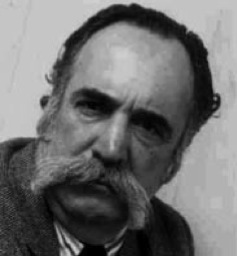
William Saroyan was a real writer, someone born to tell stories. He was a short story writer at first, then a playwright, then a novelist and finally a memoirist. He is not much talked about today, but he should be.
He wrote one the finest collections of short stories in the American idiom, My Name is Aram.
He wrote a Pulitzer Prize winning play, The Time of Your Life (he famously refused the prize).
He went into a period where his plays did not play and his books did not sell. Refusing to stop, he started writing quirky memoirs, like The Bicycle Rider in Beverly Hills and Sons Come and Go, Mothers Hang in Forever.
At the end of his life he wrote surely one of the oddest memoirs ever, Obituaries. In it he took the annual Variety edition that listed all the obits of movie industry people, and he went through it alphabetically, taking each name and riffing on it. Most of the time he didn’t know the person, but used the name as a jumping of point for his stream-of-consciousness reminiscences.
The chapters have no paragraph breaks or indents.
It should not be readable, but oddly, it is.
Because Saroyan was a writer who would not be defeated. He once said, “A writer who is a real writer is a rebel who never stops.”
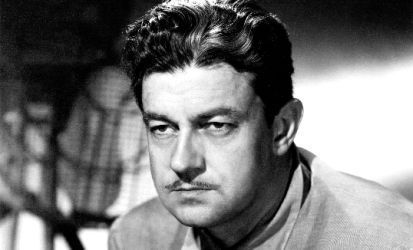
Preston Sturges was a real writer. Mainly, he was one of the greatest writer-directors in Hollywood history, and surely the finest purveyor of the screwball comedy. For a period of time he wrote and directed hit after hit after hit.
And then, suddenly, he couldn’t get arrested.
He did not stop writing.
And he said, “When the last dime is gone, I’ll sit on the curb with a pencil and a ten-cent notebook, and start the whole thing all over again.”
So now we are in a new age where it is possible for a writer to make real dough. Most writers in the past didn’t make much money at all, even if they managed to get published. A scant few ever made a living at it. Many quit or just gave up.
Now you can publish yourself, and if you care about your craft, if you really care and don’t just throw your undercooked spaghetti against the wall to see if it sticks, if you take this thing seriously and are businesslike about it, you can write and people will read what you write and you might even make a few bucks. Or more.
It’ll always be a challenge, but now there’s an even playing field. You can keep going. You can keep trying. You can keep getting better. You don’t have sit down with someone telling you you’re not capable, that you should just quit, that you should go away and leave your dreams to others. You don’t have to take that as long as you’ve got a keyboard and an imagination.
And, in this way, you can never be defeated.
Are you a real writer?
Then keep writing.
And don’t stop. Ever.
Are you a real writer?

William Saroyan was a real writer, someone born to tell stories. He was a short story writer at first, then a playwright, then a novelist and finally a memoirist. He is not much talked about today, but he should be.
He wrote one the finest collections of short stories in the American idiom, My Name is Aram.
He wrote a Pulitzer Prize winning play, The Time of Your Life (he famously refused the prize).
He went into a period where his plays did not play and his books did not sell. Refusing to stop, he started writing quirky memoirs, like The Bicycle Rider in Beverly Hills and Sons Come and Go, Mothers Hang in Forever.
At the end of his life he wrote surely one of the oddest memoirs ever, Obituaries. In it he took the annual Variety edition that listed all the obits of movie industry people, and he went through it alphabetically, taking each name and riffing on it. Most of the time he didn’t know the person, but used the name as a jumping of point for his stream-of-consciousness reminiscences.
The chapters have no paragraph breaks or indents.
It should not be readable, but oddly, it is.
Because Saroyan was a writer who would not be defeated. He once said, “A writer who is a real writer is a rebel who never stops.”

Preston Sturges was a real writer. Mainly, he was one of the greatest writer-directors in Hollywood history, and surely the finest purveyor of the screwball comedy. For a period of time he wrote and directed hit after hit after hit.
And then, suddenly, he couldn’t get arrested.
He did not stop writing.
And he said, “When the last dime is gone, I’ll sit on the curb with a pencil and a ten-cent notebook, and start the whole thing all over again.”
So now we are in a new age where it is possible for a writer to make real dough. Most writers in the past didn’t make much money at all, even if they managed to get published. A scant few ever made a living at it. Many quit or just gave up.
Now you can publish yourself, and if you care about your craft, if you really care and don’t just throw your undercooked spaghetti against the wall to see if it sticks, if you take this thing seriously and are businesslike about it, you can write and people will read what you write and you might even make a few bucks. Or more.
It’ll always be a challenge, but now there’s an even playing field. You can keep going. You can keep trying. You can keep getting better. You don’t have sit down with someone telling you you’re not capable, that you should just quit, that you should go away and leave your dreams to others. You don’t have to take that as long as you’ve got a keyboard and an imagination.
And, in this way, you can never be defeated.
Are you a real writer?
Then keep writing.
And don’t stop. Ever.
Published on May 10, 2012 07:35
April 17, 2012
Yes, Virginia, You Can Learn to Write Successful Fiction
Over at
Writer Unboxed
, bestselling novelist Sarah Pekkanen reflects on how she learned to write a novel. Key word: Learned. There are still some voices out there that say you can’t really learned the craft of writing fiction. Such voices should be collected and filed under “Baloney.” Sarah writes:
Here’s what I took away from that phone conversation [with my agent]: I had my characters down – they were in good shape. What was missing from my novel was plot.
I set out on a quest to learn how to infuse my books with plot. I began by searching for books about plotting, and I bought every single one I could find. The stack still stands on the top of my computer hutch, and if it ever comes crashing down, it might take a few days for them to find me in the rubble – I have that many books. I read every single one, scribbling notes in the margins and folding down the corners of pages when I came across particularly helpful points.
The most important thing I learned is that putting together a novel, for most of us, is difficult – but with certain creative tools, it can get easier. You may never achieve perfect pitch, but you can definitely be taught how to write a book.
Sarah was kind enough to mention a couple of books:
The two finest guides I found were Plot & Structure by James Scott Bell, and Writing the Breakout Novel by Donald Maass.
***
[T] books by Bell and Maass taught me so much more, and every time I re-read them, I come away with new tips. The best part of all? Now I have three novels of my own on bookstore shelves, and I’ve just turned in the fourth to my editor. But it never would’ve happened if I hadn’t learned to plot – and for that, I’ll always be grateful to the authors who took the time to show the rest of us how it’s done.
Sarah Pekkanen, with three acclaimed novels out now, and a fourth in the pipeline, is a prime exhibit against what I call The Big Lie, to wit, you can’t teach someone how to write successful fiction.
Be sure to read the whole post at Writer Unboxed ,
And if you want to get your novel to that storied next level, click here.

Here’s what I took away from that phone conversation [with my agent]: I had my characters down – they were in good shape. What was missing from my novel was plot.
I set out on a quest to learn how to infuse my books with plot. I began by searching for books about plotting, and I bought every single one I could find. The stack still stands on the top of my computer hutch, and if it ever comes crashing down, it might take a few days for them to find me in the rubble – I have that many books. I read every single one, scribbling notes in the margins and folding down the corners of pages when I came across particularly helpful points.
The most important thing I learned is that putting together a novel, for most of us, is difficult – but with certain creative tools, it can get easier. You may never achieve perfect pitch, but you can definitely be taught how to write a book.
Sarah was kind enough to mention a couple of books:
The two finest guides I found were Plot & Structure by James Scott Bell, and Writing the Breakout Novel by Donald Maass.
***
[T] books by Bell and Maass taught me so much more, and every time I re-read them, I come away with new tips. The best part of all? Now I have three novels of my own on bookstore shelves, and I’ve just turned in the fourth to my editor. But it never would’ve happened if I hadn’t learned to plot – and for that, I’ll always be grateful to the authors who took the time to show the rest of us how it’s done.
Sarah Pekkanen, with three acclaimed novels out now, and a fourth in the pipeline, is a prime exhibit against what I call The Big Lie, to wit, you can’t teach someone how to write successful fiction.
Be sure to read the whole post at Writer Unboxed ,
And if you want to get your novel to that storied next level, click here.
Published on April 17, 2012 13:29
April 10, 2012
One of My Heroes
I want to be this: 96 years old and still writing, still being read.
Herman Wouk, four years short of a century, has landed another book deal .
I love this!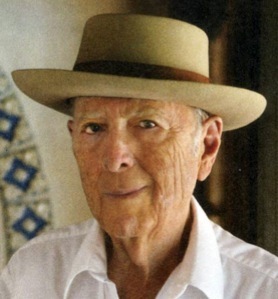
Wouk is one of our national treasures, the author of numerous great “middlebrow” books.
Middlebrow is something we’ve lost pretty much in our culture, to our great detriment. These were the sort of books that transcended pulp yet were not so highbrow as to be inaccessible.
Wouk majored in such works. Here are a few:
The Caine Mutiny (winner of the Pulitzer Prize)
Marjorie Morningstar
Youngblood Hawke
The Winds of War (his masterpiece, IMO)
War and Remembrance
And these weren’t short books, either. Wouk is a master storyteller. And where did he learn his craft? From radio! He wrote for the legendary radio comedian Fred Allen, and I’m sure that’s how he learned conflict, character and structure. You can’t write sketch comedy without them. Or a successful novel.
The Caine Mutiny proved to be so popular it became the basis of both a film and a play. It is considered one of the best portrayals of Navy life and is stellar courtroom drama. If you’ve never read it or seen the film, do yourself a favor and go for both.
So Mr. Wouk, Godspeed. You are an inspiration. I want to be just like you when I’m looking over the fence at my approaching century mark.
Please respond via Twiitter.
Herman Wouk, four years short of a century, has landed another book deal .
I love this!

Wouk is one of our national treasures, the author of numerous great “middlebrow” books.
Middlebrow is something we’ve lost pretty much in our culture, to our great detriment. These were the sort of books that transcended pulp yet were not so highbrow as to be inaccessible.
Wouk majored in such works. Here are a few:
The Caine Mutiny (winner of the Pulitzer Prize)
Marjorie Morningstar
Youngblood Hawke
The Winds of War (his masterpiece, IMO)
War and Remembrance
And these weren’t short books, either. Wouk is a master storyteller. And where did he learn his craft? From radio! He wrote for the legendary radio comedian Fred Allen, and I’m sure that’s how he learned conflict, character and structure. You can’t write sketch comedy without them. Or a successful novel.
The Caine Mutiny proved to be so popular it became the basis of both a film and a play. It is considered one of the best portrayals of Navy life and is stellar courtroom drama. If you’ve never read it or seen the film, do yourself a favor and go for both.
So Mr. Wouk, Godspeed. You are an inspiration. I want to be just like you when I’m looking over the fence at my approaching century mark.
Please respond via Twiitter.
Published on April 10, 2012 06:51
March 27, 2012
First Person Boring
First Person Boring
I love a good First Person POV novel. I love writing FP myself. But there are perils, and if you're thinking of trying your hand at it you're going to need be aware of them.
One of these is the "I'm so interesting" opening that is anything but.
Recently I read a couple of novels in FP that had this problem. They began with the narrator telling us his name and giving us a chapter of backstory. By the time I finished the opening chapter I was thinking, Why am I even listening to you?
Let me illustrate. You go to a party and see a guy standing off to the side, you nod and introduce yourself, and he says, "Hi. My name is Chaddington Flesch. Most people call me Cutty, because my grandfather, Bill Flesch, refused to call me anything else. He liked Cutty Sark, you see, and thought this name would make a man out of me. All through school I had to explain why I was called Cutty. Growing up in Brooklyn, that wasn't always easy. Even today, at my job, which happens to be as an accountant, I . . ."
Yadda yadda yadda. And you're standing there at this party thinking, Dude, I'm sorry, but I don't especially care about your history. I have a history, everybody at this party has a history. Nice meeting you, but . . .
But what if you introduce yourself to the guy and he says, "Did you avoid the cops outside?"
You look confused.
"Because I got stopped by a cop right out there on the street. He tells me to hit the sidewalk, face down, and then proceeds to kick me in the ribs. I say, 'There's been a mistake.' He gets down in my face and says, 'You're the mistake. I'm the correction.'"
What are you thinking then? Either: Am I talking to a criminal? Or, What happened to this poor guy?
What your reaction isn't is bored.
You are hooked on what happened to him. And that's the key to opening with FP. Open with the narrator describing action and not dumping a pile of backstory.
Save that stuff for later.
Open with movement, with action.
I got off the plane at Maguire, and sent a telegram to my dad from the terminal before they loaded us into buses. Two days later, the Air Force made me a civilian, and I walked toward the gate in my own clothes, a suitcase in each hand.
I was a mess.
[361 by Donald Westlake]
The girl's name was Jean Dahl. That was all the information Miss Dennison had been able to pry out of her. Miss Dennison had finally come back to my office and advised me to talk to her. "She's very determined," my secretary said. "I just can't seem to get rid of her."
Then Miss Dennison winked. It was a dry, spinsterish, somewhat evil wink.
[Blackmailer by George Axelrod]
The nun hit me in the mouth and said, "Get out of my house."
[Try Darkness by James Scott Bell]
Now I realize I've used hardboiled examples here, and some of you favor more literary writing. There's a lot of debate on just how you define "literary," but let me suggest that literary does not mean leisurely. You can still open with a character in motion in a literary novel, and I guarantee you your chances of hooking an agent or editor, not to mention a reader, will go way up without any other effort at all.
One of my biggest tips to new writers is the "Chapter 2 Switcheroo." I can't tell you how many times I've looked at a manuscript and suggested that Chapter 1 be thrown out and Chapter 2 take over as the new opening. I would say, conservatively, that 90% of the time it makes all the difference, because the characters are moving. There's action. Something is happening. And truly important backstory can be dribbled in later. Readers will always wait patiently for backstory if your frontstory is moving.
Try it and see.
This writing tip is from Writing Fiction For All You’re Worth
I love a good First Person POV novel. I love writing FP myself. But there are perils, and if you're thinking of trying your hand at it you're going to need be aware of them.
One of these is the "I'm so interesting" opening that is anything but.
Recently I read a couple of novels in FP that had this problem. They began with the narrator telling us his name and giving us a chapter of backstory. By the time I finished the opening chapter I was thinking, Why am I even listening to you?
Let me illustrate. You go to a party and see a guy standing off to the side, you nod and introduce yourself, and he says, "Hi. My name is Chaddington Flesch. Most people call me Cutty, because my grandfather, Bill Flesch, refused to call me anything else. He liked Cutty Sark, you see, and thought this name would make a man out of me. All through school I had to explain why I was called Cutty. Growing up in Brooklyn, that wasn't always easy. Even today, at my job, which happens to be as an accountant, I . . ."
Yadda yadda yadda. And you're standing there at this party thinking, Dude, I'm sorry, but I don't especially care about your history. I have a history, everybody at this party has a history. Nice meeting you, but . . .
But what if you introduce yourself to the guy and he says, "Did you avoid the cops outside?"
You look confused.
"Because I got stopped by a cop right out there on the street. He tells me to hit the sidewalk, face down, and then proceeds to kick me in the ribs. I say, 'There's been a mistake.' He gets down in my face and says, 'You're the mistake. I'm the correction.'"
What are you thinking then? Either: Am I talking to a criminal? Or, What happened to this poor guy?
What your reaction isn't is bored.
You are hooked on what happened to him. And that's the key to opening with FP. Open with the narrator describing action and not dumping a pile of backstory.
Save that stuff for later.
Open with movement, with action.
I got off the plane at Maguire, and sent a telegram to my dad from the terminal before they loaded us into buses. Two days later, the Air Force made me a civilian, and I walked toward the gate in my own clothes, a suitcase in each hand.
I was a mess.
[361 by Donald Westlake]
The girl's name was Jean Dahl. That was all the information Miss Dennison had been able to pry out of her. Miss Dennison had finally come back to my office and advised me to talk to her. "She's very determined," my secretary said. "I just can't seem to get rid of her."
Then Miss Dennison winked. It was a dry, spinsterish, somewhat evil wink.
[Blackmailer by George Axelrod]
The nun hit me in the mouth and said, "Get out of my house."
[Try Darkness by James Scott Bell]
Now I realize I've used hardboiled examples here, and some of you favor more literary writing. There's a lot of debate on just how you define "literary," but let me suggest that literary does not mean leisurely. You can still open with a character in motion in a literary novel, and I guarantee you your chances of hooking an agent or editor, not to mention a reader, will go way up without any other effort at all.
One of my biggest tips to new writers is the "Chapter 2 Switcheroo." I can't tell you how many times I've looked at a manuscript and suggested that Chapter 1 be thrown out and Chapter 2 take over as the new opening. I would say, conservatively, that 90% of the time it makes all the difference, because the characters are moving. There's action. Something is happening. And truly important backstory can be dribbled in later. Readers will always wait patiently for backstory if your frontstory is moving.
Try it and see.
This writing tip is from Writing Fiction For All You’re Worth
Published on March 27, 2012 08:43
March 21, 2012
Are All Novelists Moral Philosophers?
I've been reading Ayn Rand's writing reflections, The Art of Fiction.
You may not know this, but she started as a screenwriter and
playwright. This gave her an appreciation of structure, without which
I don't know that her success as a novelist would have been possible.
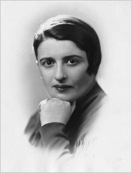
Anyway, in talking about theme, which she emphasizes, she makes the
point (rightly) that any story is going to have a worldview (she
doesn't call it that), even one that seems to have no point...because
that is a worldview, too. You can't escape leaving something for
readers to ponder. The only question is how well you do it.
According to Rand, all novelists are, therefore, “moral philosophers.”
Some are just not very good philosophers (in that they haven't thought through their
themes enough to know how to integrate them to the writing).
I like what she says about proving the theme through action. It's what
the characters do, how they respond to or activate the plot, that
proves the theme (or premise, as it is sometimes called).
Atlas Shrugged, BTW, is 640,000 words long. And every word is there to
support her premise, because she absolutely knew what it was.
Her editor, Bennett Cerf, made the mistake of suggesting a bit of
editing to her.
"You vould not cut zee Bible, vould you?" she said.
The book was not cut.
It still sells tens of thousands of copies a year, some 55 years after
publication.
So does On the Road, BTW, which was published that same year, 1957. In
part, I believe, because every word of THAT novel supports Kerouac's
premise that the point of life is the pursuit of "beatitude through
experience." Kerouac knew the premise without articulating it as such,
in a Randian way. But he was feeling it all the way through the
writing.
You don't have to agree with the philosophy of a novel, Rand says, to
appreciate the success or failure of the writer. She deems Sinclair
Lewis a failure and Mickey Spillane a success.
Fascinating.
Please feel free to respond via Twiitter.
You may not know this, but she started as a screenwriter and
playwright. This gave her an appreciation of structure, without which
I don't know that her success as a novelist would have been possible.

Anyway, in talking about theme, which she emphasizes, she makes the
point (rightly) that any story is going to have a worldview (she
doesn't call it that), even one that seems to have no point...because
that is a worldview, too. You can't escape leaving something for
readers to ponder. The only question is how well you do it.
According to Rand, all novelists are, therefore, “moral philosophers.”
Some are just not very good philosophers (in that they haven't thought through their
themes enough to know how to integrate them to the writing).
I like what she says about proving the theme through action. It's what
the characters do, how they respond to or activate the plot, that
proves the theme (or premise, as it is sometimes called).
Atlas Shrugged, BTW, is 640,000 words long. And every word is there to
support her premise, because she absolutely knew what it was.
Her editor, Bennett Cerf, made the mistake of suggesting a bit of
editing to her.
"You vould not cut zee Bible, vould you?" she said.
The book was not cut.
It still sells tens of thousands of copies a year, some 55 years after
publication.
So does On the Road, BTW, which was published that same year, 1957. In
part, I believe, because every word of THAT novel supports Kerouac's
premise that the point of life is the pursuit of "beatitude through
experience." Kerouac knew the premise without articulating it as such,
in a Randian way. But he was feeling it all the way through the
writing.
You don't have to agree with the philosophy of a novel, Rand says, to
appreciate the success or failure of the writer. She deems Sinclair
Lewis a failure and Mickey Spillane a success.
Fascinating.
Please feel free to respond via Twiitter.
Published on March 21, 2012 06:53
February 23, 2012
My Dad and What He Cared About
I only remember seeing my dad cry twice.
The first time was during the funeral of Robert F Kennedy. I was thirteen and sitting in our living room reading a book. My dad came in and turned on the TV and sat down in front of the live coverage.
I was just becoming politically aware, though basketball and girls were at the top of my priority list. But like many of my generation I responded to Bobby Kennedy. So did my dad, a Depression-era, FDR-inspired Democrat.
Soon, my mom came into the living room to watch what was going on. I don't remember which newscaster narrated the events. Probably Walter Cronkite, who at the time was the most watched and most trusted of TV news anchors. I do remember a train carrying Kennedy's body, and hundreds of people lined along the tracks. Some held flags, some saluted, some simply stood with hands over hearts.
And then, all of a sudden, my dad turned to my mom and started weeping into her chest.
The sight absolutely stunned me. My dad was a big, strong World War II vet. He was my rock. To see him so vulnerable moved me in ways I could not, as a young teenager, even begin to express.
Many years later, when I was in law school, I went to a criminal law convention where my dad was speaking. He was the leading expert on the law of search and seizure in California, highly respected by his peers. The ballroom was packed. I was proud to be his son, hearing the warm reception he got.
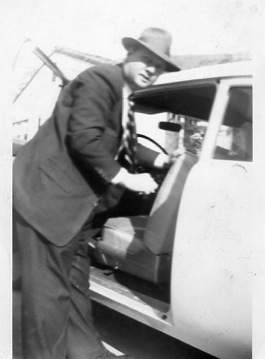
He began to speak about the Fourth Amendment, and a particular case in Los Angeles. The police had gone into a neighborhood with a tank-like battering ram and just plowed down a house suspected of being a drug hub. A house wherein there were children eating ice cream.
When he got to the part about the kids and the ice cream he choked up. My dad was not a knee-jerk anything. He didn't dislike cops. But he loved the Constitution most of all, and the injustice of the event touched him to the core.
Again, I was profoundly moved. Why? Because it was so unlike my dad's "normal" self? Perhaps a little. But it was much more than that. It was seeing how much Dad valued justice under law. It made me want to dig deeper into my own core.
Dad believed that lawyers should do more than make a living; he thought they should actually make people's lives and society better (lawyer jokes to the contrary notwithstanding!) He was especially concerned with the weak and vulnerable.
These memories came rushing back to me the other day when an interviewer asked me a question about my Mallory Caine, Zombie-at-Law series (written as K. Bennett). Mallory is a criminal lawyer in Los Angeles who just happens to be one of the walking dead. Hey, nobody's perfect.
The interviewer asked how much of me was in Mallory. And as I started to think about it, it hit me that Mallory is not based on me, but on my dad. She is a lawyer who represents the outcasts in LA (like vampires and werewolves). She is passionate about the law and the Constitution. And she is a great trial lawyer.
My dad was all those things. And his desire for justice was transferred to me, by his inspiration, and I can see now how it permeates all my writing. It's like Rumpole's Golden Thread , running through my novels and stories.
For his example I am truly grateful.
Please feel free to respond via Twiitter.
The first time was during the funeral of Robert F Kennedy. I was thirteen and sitting in our living room reading a book. My dad came in and turned on the TV and sat down in front of the live coverage.
I was just becoming politically aware, though basketball and girls were at the top of my priority list. But like many of my generation I responded to Bobby Kennedy. So did my dad, a Depression-era, FDR-inspired Democrat.
Soon, my mom came into the living room to watch what was going on. I don't remember which newscaster narrated the events. Probably Walter Cronkite, who at the time was the most watched and most trusted of TV news anchors. I do remember a train carrying Kennedy's body, and hundreds of people lined along the tracks. Some held flags, some saluted, some simply stood with hands over hearts.
And then, all of a sudden, my dad turned to my mom and started weeping into her chest.
The sight absolutely stunned me. My dad was a big, strong World War II vet. He was my rock. To see him so vulnerable moved me in ways I could not, as a young teenager, even begin to express.
Many years later, when I was in law school, I went to a criminal law convention where my dad was speaking. He was the leading expert on the law of search and seizure in California, highly respected by his peers. The ballroom was packed. I was proud to be his son, hearing the warm reception he got.

He began to speak about the Fourth Amendment, and a particular case in Los Angeles. The police had gone into a neighborhood with a tank-like battering ram and just plowed down a house suspected of being a drug hub. A house wherein there were children eating ice cream.
When he got to the part about the kids and the ice cream he choked up. My dad was not a knee-jerk anything. He didn't dislike cops. But he loved the Constitution most of all, and the injustice of the event touched him to the core.
Again, I was profoundly moved. Why? Because it was so unlike my dad's "normal" self? Perhaps a little. But it was much more than that. It was seeing how much Dad valued justice under law. It made me want to dig deeper into my own core.
Dad believed that lawyers should do more than make a living; he thought they should actually make people's lives and society better (lawyer jokes to the contrary notwithstanding!) He was especially concerned with the weak and vulnerable.
These memories came rushing back to me the other day when an interviewer asked me a question about my Mallory Caine, Zombie-at-Law series (written as K. Bennett). Mallory is a criminal lawyer in Los Angeles who just happens to be one of the walking dead. Hey, nobody's perfect.
The interviewer asked how much of me was in Mallory. And as I started to think about it, it hit me that Mallory is not based on me, but on my dad. She is a lawyer who represents the outcasts in LA (like vampires and werewolves). She is passionate about the law and the Constitution. And she is a great trial lawyer.
My dad was all those things. And his desire for justice was transferred to me, by his inspiration, and I can see now how it permeates all my writing. It's like Rumpole's Golden Thread , running through my novels and stories.
For his example I am truly grateful.
Please feel free to respond via Twiitter.
Published on February 23, 2012 13:46



